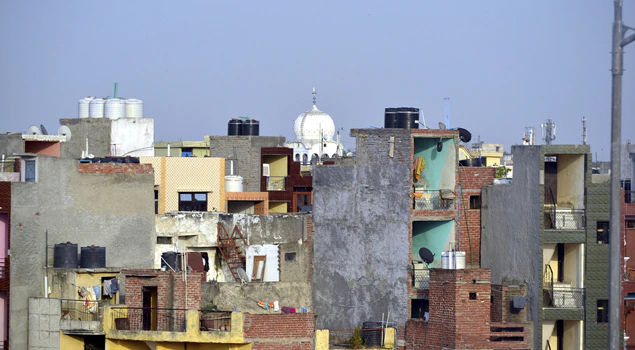Gold Standard Develops New Funding Structures to Deliver Clean Energy and Development in Cities.

Geneva, Switzerland
Thursday, 10th April 2014
As governments and development experts meet at the World Urban Forum in Colombia, The Gold Standard Foundation has released the first-ever financing framework designed to inject the billions of dollars needed to scale-up clean technology and pro-poor development in cities around the globe.
DelhiSlumTransforming cities will play a critical role in combatting climate change as cities consume around 75% of global resources and emit around 75% global greenhouse gas (GHG) emissions. By 2050 the global population in cities will rise from 3.5 to 6.25 billion with a corresponding 80% rise in energy requirements.
Despite this, climate finance has largely failed to reach cities and efforts to reduce GHG emissions that have taken place rarely focus on improving the lives of the people living in those communities, for example, by providing access to basic services like electricity and clean water. These shortfalls have been attributed to a lack of rigorous auditing frameworks and the absence of viable large-scale, long-term financing structures. In fact, according to the World Bank, only 4% of the largest 500 cities in the developing world are credit worthy in international markets, making it almost impossible to secure the finance needed for transformational change.
The new Gold Standard Sustainable Cities framework goes beyond strictly GHG-driven interventions, allowing funding agencies and developers to include activities with significant social benefits independent of their associated GHGs emission reductions. For example, providing access to clean water can result in GHGs emission reductions and deliver a critical health service to a local community.
“This framework greatly broadens the potential sources of financing for these critical urban initiatives because the mandatory verification of results by an independent third party, such as The Gold Standard, provides the credibility and assurance that funding agencies need,” said Abhishek Bansal, The Gold Standard’s Cities Programme Manager. Indeed, in addition to traditional carbon finance, project developers can now pursue a mix of other alternatives like grants, green bonds, and preferential loans from local and multilateral agencies in addition to other results-based financing schemes—both public and private.
The ground-breaking study that established these innovative new financing frameworks focussed on poor and middle-income urban communities in Delhi, India. The Gold Standard Sustainable Cities Programme will subsequently implement a pilot programme in Delhi and in other suitable locations around the world.
In parallel, The Gold Standard has begun working with The World Bank to develop the tools necessary for a city-wide ‘green growth’ programme in Colombo, Sri Lanka and with the Municipality of Sakarya in Turkey, in its UNDP-supported low carbon development programme. These approaches and tools can then be used to support replicable, socially responsible low carbon urban development programmes worldwide.
